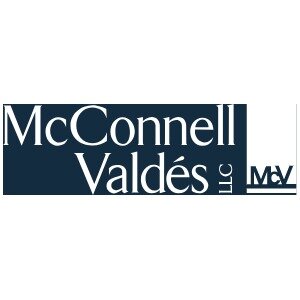Best Real Estate Due Diligence Lawyers in San Juan
Share your needs with us, get contacted by law firms.
Free. Takes 2 min.
Free Guide to Hiring a Real Estate Lawyer
List of the best lawyers in San Juan, Puerto Rico
About Real Estate Due Diligence Law in San Juan, Puerto Rico
Real Estate Due Diligence in San Juan, Puerto Rico, involves a comprehensive appraisal of a property to identify any potential legal, financial, or structural issues before completing a transaction. This process is crucial for buyers, investors, and other stakeholders to ensure that their investment is sound and free of unforeseen liabilities. Due diligence in Puerto Rico entails reviewing the property's legal status, verifying property titles, assessing compliance with local zoning laws, and inspecting for any environmental or structural concerns.
Why You May Need a Lawyer
Legal experts can offer critical assistance in Real Estate Due Diligence due to the complex nature of property laws and the potential risks involved. Common situations where a lawyer's expertise might be necessary include:
- Verifying the authenticity and clarity of property titles.
- Reviewing and negotiating purchase agreements or contracts.
- Ensuring compliance with local zoning and land-use regulations.
- Identifying easements, liens, or encumbrances on the property.
- Conducting title searches to prevent future legal disputes.
- Navigating environmental concerns or compliance with regulations.
Local Laws Overview
San Juan, Puerto Rico, operates under a unique legal framework that blends U.S. federal law with local territorial law. Key aspects of local laws pertinent to Real Estate Due Diligence include:
- Property Record Laws: The Puerto Rico Property Registry ensures that property records are updated and accurate. Title searches are crucial to verify ownership and any claims against a property.
- Zoning Regulations: Properties must comply with zoning laws that dictate permissible land uses and structures. Changes in zoning designations can affect property value and use.
- Environmental Regulations: Due diligence must include checking for any environmental protections or restrictions that may apply, especially in coastal areas.
- Consumer Protection Laws: Transactions are subject to laws aimed at protecting buyers from unfair practices and ensuring transparency in real estate dealings.
Frequently Asked Questions
What is the significance of a title search in Puerto Rico?
A title search is critical to establish clear ownership and uncover any legal claims or liens. This ensures that the property can be legally transferred to the buyer without future disputes.
How can I verify zoning requirements for a property in San Juan?
Zoning information can be verified through the local municipio’s planning office or a real estate attorney who can assess whether a property meets the necessary zoning regulations.
Are there specific considerations for coastal properties in Puerto Rico?
Yes, coastal properties may be subject to additional regulations concerning environmental protection, public access, and erosion prevention efforts. Adequate due diligence is required to comply with these regulations.
Can legal issues arise from older property deeds?
Older deeds may lack clarity or may not accurately reflect current property boundaries. Engaging in due diligence can identify such issues and ensure they are resolved before closing.
What role does a lawyer play in reviewing purchase agreements?
A lawyer can review and negotiate purchase agreements to protect your interests, ensuring that all terms are favorable and clearly documented.
What are common red flags in real estate due diligence?
Red flags include unclear titles, zoning compliance issues, unrecorded easements, pending litigations, or environmental hazards. A lawyer can help identify and address these issues.
How do structural inspections factor into due diligence?
Structural inspections are vital to determining a property’s physical condition, revealing potential issues like roofing problems or foundational weaknesses that could incur significant repair costs.
What is an encumbrance and how can it affect property transactions?
An encumbrance is a legal claim or lien on a property by someone other than the owner. These can impede a sale, limit usage rights, or require resolution before the property changes hands.
Is it possible to renegotiate the sale terms after due diligence?
Yes, issues identified during due diligence can often lead to renegotiation of terms, potential price adjustments, or repairing specific deficiencies before the sale completion.
What should I do if environmental concerns are identified during due diligence?
If environmental issues are found, they must be resolved according to local and federal regulations, potentially involving remediation efforts or negotiations regarding liability with the seller.
Additional Resources
For further guidance and support, consider reaching out to the following resources:
- Puerto Rico Property Registry: For official property records and title research.
- Municipality of San Juan Planning Office: For zoning and land-use information.
- Puerto Rico Legal Services: Offers legal assistance in real estate matters.
- Puerto Rico Environmental Quality Board: For consults on environmental issues related to property.
Next Steps
If you need legal assistance in Real Estate Due Diligence, consider the following steps:
- Consult a Real Estate Attorney: Seek out legal professionals in Puerto Rico who specialize in real estate law to guide you through your due diligence process.
- Compile Necessary Documents: Gather all required documents, including property deeds, maps, inspection reports, and regulatory filings.
- Engage an Independent Inspector: Employ a qualified inspector for a thorough assessment of the property's physical condition.
- Evaluate Financial Implications: Analyze the financial aspects of the investment, considering potential risks highlighted in the due diligence process.
- Remain Informed: Stay updated on any legal developments that may impact real estate transactions in San Juan, Puerto Rico.
Lawzana helps you find the best lawyers and law firms in San Juan through a curated and pre-screened list of qualified legal professionals. Our platform offers rankings and detailed profiles of attorneys and law firms, allowing you to compare based on practice areas, including Real Estate Due Diligence, experience, and client feedback.
Each profile includes a description of the firm's areas of practice, client reviews, team members and partners, year of establishment, spoken languages, office locations, contact information, social media presence, and any published articles or resources. Most firms on our platform speak English and are experienced in both local and international legal matters.
Get a quote from top-rated law firms in San Juan, Puerto Rico — quickly, securely, and without unnecessary hassle.
Disclaimer:
The information provided on this page is for general informational purposes only and does not constitute legal advice. While we strive to ensure the accuracy and relevance of the content, legal information may change over time, and interpretations of the law can vary. You should always consult with a qualified legal professional for advice specific to your situation.
We disclaim all liability for actions taken or not taken based on the content of this page. If you believe any information is incorrect or outdated, please contact us, and we will review and update it where appropriate.









